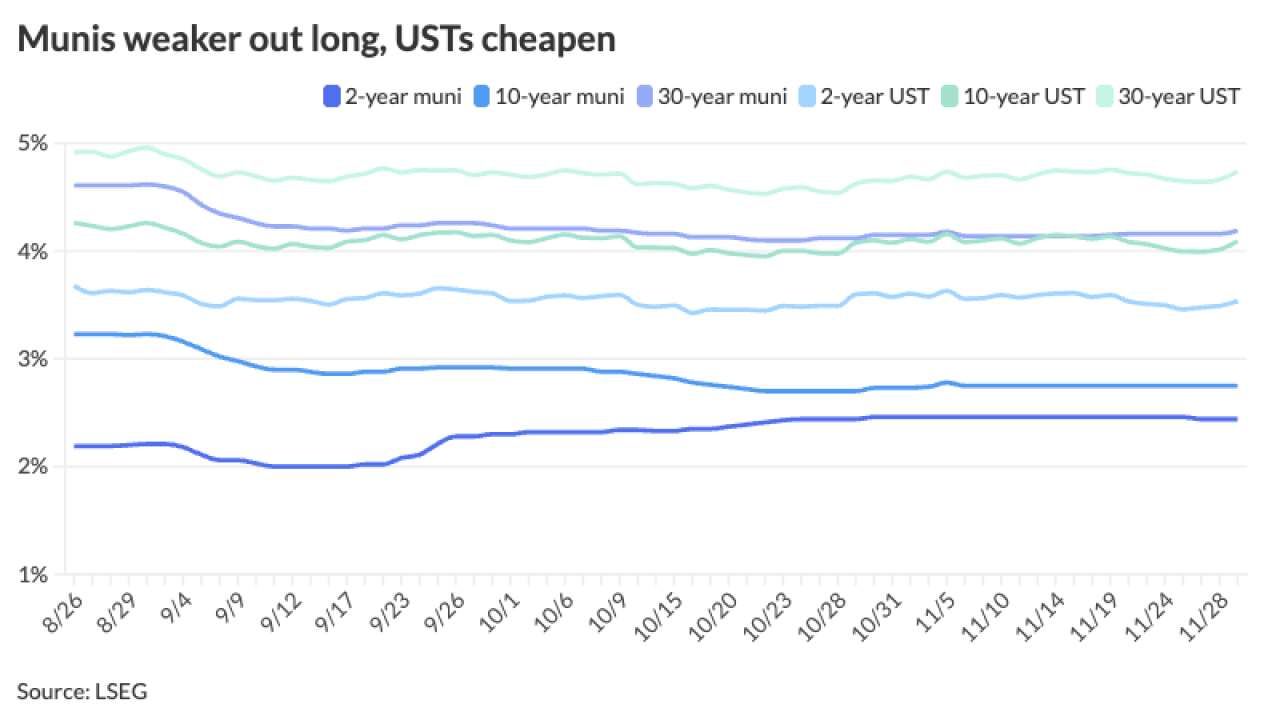The rebound in the cruise industry, which has now more than recovered all the ground it
"The upgrade reflects the port's strengthened financial profile supported by significant revenue growth following the full resumption of cruise activity in fiscal 2023," Fitch said Dec. 8. The rating affects about $136 million in revenue bonds; the port has an additional $233 million outstanding parity revenue bonds that aren't rated by Fitch.
As the closest port to the Orlando and Central Florida theme parks and attractions, which include Walt Disney World, Universal and SeaWorld, Port Canaveral is home port to 13 cruise ships,

Cruise revenues currently account for 83% of the authority's operating revenues, with the rest coming from commercial and military warehouse, logistics and shipping clients. The port hosts most of the major cruise lines serving the East Coast, including Royal Caribbean, Carnival, Norwegian, Disney and MSC.
According to Fitch, total cruise passenger volume for fiscal 2023 was over 6.7 million, a 37% increase over the pre-pandemic high of 4.9 million. "Unaudited cruise revenues for fiscal 2023, including parking, are expected to be approximately $158 million, a 60% increase when compared with fiscal 2022," Fitch said.
Current revenues cover debt service two times, exceeding the covenanted 1.25 times coverage of maximum annual debt service. The authority's debt structure, which Fitch calls "conservative," includes "long-term, fixed-rate revenue bonds with staggered maturities and a final maturity in 2048."
"While the port remains exposed to the discretionary cruise business, contracts with key cruise lines help to insulate revenue from volume fluctuations," Fitch said.
Moody's Investors Service rates Port Canaveral A3 with a stable outlook.
Port Canaveral isn't alone in seeing a rise in cruise traffic; 220 miles to the south, PortMiami reported almost 7.3 million passengers in fiscal 2023, which ended Sept. 30. That was 6.97% higher than its previous record in fiscal 2019.
Several of the publicly traded stand-alone cruise line companies have seen a dramatic increase in their stock prices in recently months, following robust third-quarter earnings reports and forward guidance, propelled by strong bookings and higher ticket prices.
Carnival Corp. stock, for example, is up 66% since a recent low on Oct. 16, as of Dec. 13. The stock prices of both Royal Caribbean Cruises and Norwegian Cruise Line Holdings are up more than 50% since Oct. 20 and Nov. 9, respectively.
In September Carnival reported net income of $1.1 billion for the third quarter ended Aug. 31, versus a $707 million loss in the prior year's third quarter, its first positive quarter since the pandemic, which largely shut down industry operations. Revenues hit an all-time high of $6.9 billion, up nearly 60% versus the comparable year-earlier period. "Booking volumes during the quarter were running nearly 20 percent above 2019 levels," which would be an all-time record, the company said.
Royal Caribbean reported third quarter net income of $1.0 billion, up sharply from $33.0 million for the same period in 2022, while revenue rose to $4.2 billion from $3.0 billion, a 39% gain.
"Demand for 2024 has continued to accelerate, with bookings significantly and consistently outpacing 2019 levels," the company said. "Booked load factors and rates are higher than all prior years while the booking window has continued to extend."
Norwegian reported third quarter net income of $345.9 million, reversing a $295.4 million loss in the prior year's comparable quarter, as revenue hit a record $2.5 billion, up 57% from a year earlier and 33% higher than the pre-pandemic year of 2019.
"The company continues to experience healthy consumer demand with the cumulative booked position for the fourth quarter of 2023 ahead of 2019 levels at continued higher pricing," Norwegian said. "As of September 30, 2023, the company's advance ticket sales balance, including the long-term portion, was $3.1 billion, approximately 59% higher than the third quarter of 2019."





